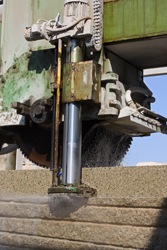Strong as stone
Quality is a key determinant in the stone processing industry, and speeding up quality control can help the industry flourish. By reducing time to market, this will help mitigate the environmental impact as well. The EU-funded project 'Development of an automated classification system for polished stone slabs and tiles' (Provips) used spectral sensors and cameras to optimise and quicken quality control, standardisation and classification. In essence, this is aimed at helping the industry increase productivity, save time, eliminate human error and meet client expectations in delivering standardised products. The project team bridged the gap between industry requirements and technical parameters of the technology, such as camera and sensors required for the project. It outlined necessary classifications and attributes used in inspecting stone tiles and slabs through a new Customised Stone Surface Quality Classification Procedure (CSSQPro). This procedure was integrated into a software programme acquired by the vision system that focuses on the characteristics required by the client and can be configured for different cases and clients. The project team developed the first version of the software and tested it with success. It addressed colour systems, pixel structure and other necessary refinements to create a powerful system. A project website was also created to update both the members of the project consortium and the public at large regarding progress achieved. When the system is perfected, quicker and more accurate delivery of stone products to consumers will be realised, giving a major boost to the stone sector and this facet of the economy. In the meantime, faster and more streamlined delivery will mean less of an impact on the environment, adding a green component to this new process.







